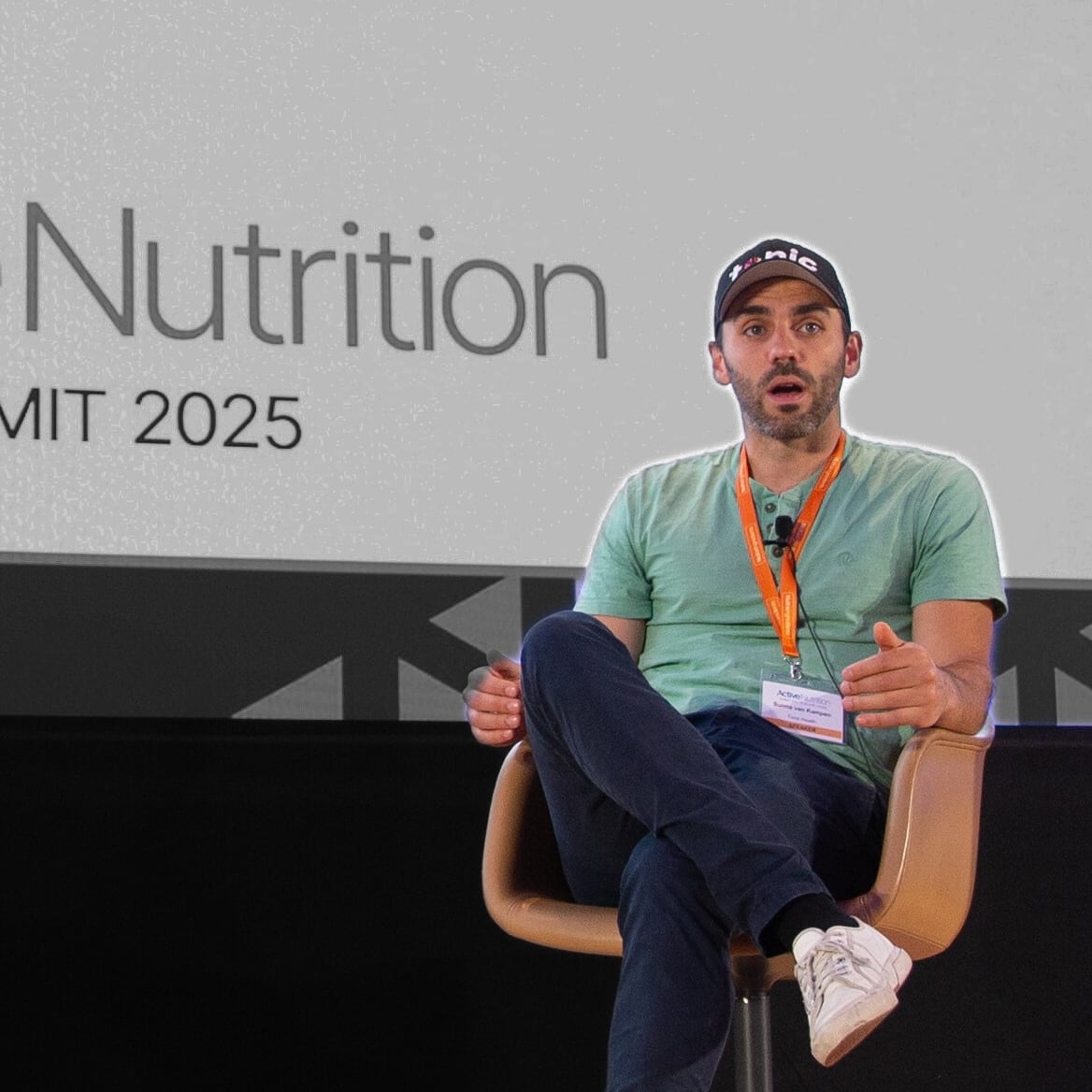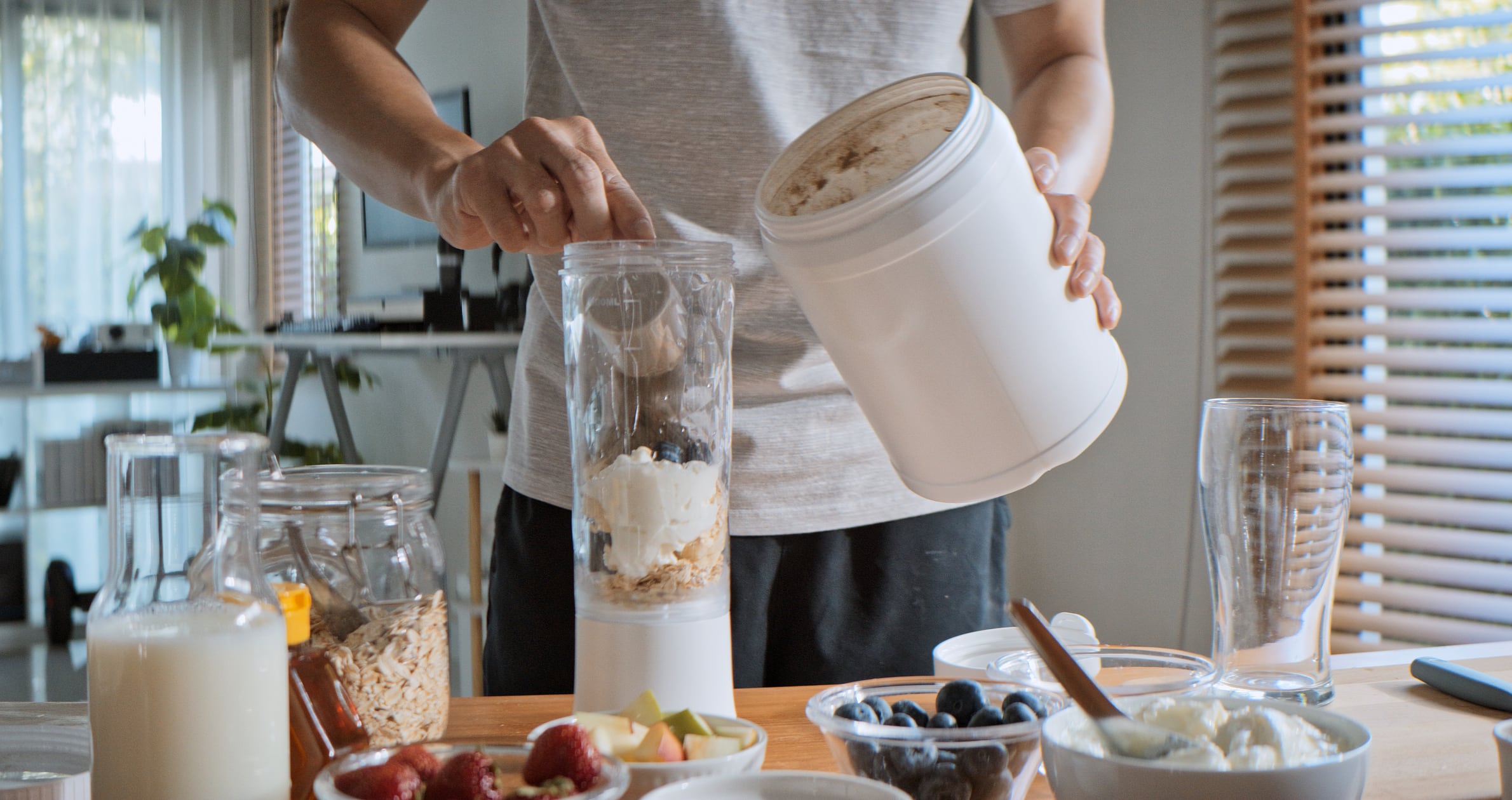As of mid-2025, UK based Tonic Health had over 1.3 million followers across its social media platforms and was garnering over 50 million monthly organic views. The brand recently secured a £3 million investment in a Series A funding round and announced the launch of a new podcast in collaboration with British broadcaster Channel 4 called ‘The Good, The Bad & Healthy’.
Van Kampen takes an alternative approach to social media to most nutrition brands in that he rarely talks about his own company or products in the content.
During the event held in Vienna in May, Sunna told the audience how he instead credits his success to the critiques of ultra-processed foods and the promotion of healthier alternatives.
NI: You don’t tend to talk about your own products on your social media. Why is that?
Sunna Van Kampen (SVK): Because it’s not about me. It’s not even about the brand. It’s about the consumer. Sure, we want to grow a big business, but we do that by helping other people improve their health.
There’s been a massive shift where social media isn’t really “social” anymore; it’s entertainment media. The best content gets shown to the most people, regardless of follower count, and so if you’re not providing value, no one sees your stuff. That’s why I rarely talk about products, because if I did then people would scroll right past.
NI: There must be commercial benefits to this approach?
SVK: Definitely yes that’s important, and we have investors that care about metrics and some of them want to boil everything down to performance per post, but that’s not how consumers shop anymore.
In the UK, people shop through awareness, so they don’t just see a post and buy something instantly, they’re going to think about it, maybe see it in a store later. So social is about planting seeds, and increasingly retailers are paying attention to that kind of reach.
NI: Clearly social media is essential for brand building and can create some huge opportunities, but are there risks too?
SVK: It’s the biggest opportunity for any brand in the world, honestly. Social media gets more views than TV and Netflix combined. It’s the only platform where you can have zero followers and go viral tomorrow.
But yeah, the risk is real too. You’re out there on a stage, and people can, and will, try to take you down, and it can get nasty. But the flip side is it holds you accountable, and if you make claims that aren’t quite right, people will call you out—so really that’s the trade-off, it’s very risk and reward.
NI: Speaking of risks, Tonic Health has been called out by the ASA (Advertising Standards Authority) previously. But this is advisory rather than regulatory, so do you think the lack of regulation in the digital space is helping or hurting brands in terms of communication?
SVK: Look, regulation is important and especially for safety, but it should be focused on protecting consumers, like preventing 10 million units of a product going to market before it’s even tested. That’s the issue, not someone sharing health advice on Instagram.
I’ve seen websites link products to autism and ADHD with zero basis, and that’s what is dangerous. I stick to what I know, I speak from the science I understand, and I don’t make medical claims because I’m not a doctor. But I do challenge the ASA when there’s valid science they haven’t caught up with yet, and if that means I break the rules sometimes to tell the truth and help people live healthier, then so be it.
NI: What’s been the biggest lesson you’ve learned from using social media?
SVK: That people are genuinely looking for help. They have real issues to tackle like energy, sleep, immunity, and they need guidance. Medicine does its job, but for day-to-day wellness, supplements can make a huge difference.
Our food is less nutritious than it used to be, and so even if people are eating enough, they’re not getting what they need, but we can help change that and the science is there.
NI: So what’s next for Tonic Health?
SVK: I’ve become known as ‘that supermarket guy’ calling out what’s healthy and what’s not, so we’re expanding. One key area is showing how easy it is to eat whole, real food—we’re launching new content around that.
We’re also launching a podcast in partnership with Channel Four. It’ll feature long-form conversations with people about their health journeys. Less science, more real stories. Just honest, personal discussions, including celebrities and everyday people, why they do what they do for their health.
NI: Why launch a podcast now?
SVK: We actually tried a podcast before, during COVID, and we had brilliant guests like doctors and health professionals, but we didn’t have the distribution or the audience to make it worthwhile, so essentially it failed.
Now, we’ve built that up, we’ve got bigger guests, and we’re ready to go mass market with it.
NI: You’ve had some heat over your posts, so how do you respond to public criticism?
SVK: I don’t always respond online, but I’m open to conversation. That’s why we love the podcast format, as it allows for a real discussion, not just these kinds of comment wars. If a nutritionist disagrees with me, I’d love to have them on the podcast and talk it through. That’s science, it’s meant to be debated.
NI: And you’ll give credit where it’s due even if it’s a brand you’ve criticized in a social post before. Why is the nuance important?
SVK: Exactly, it’s not black and white, but people love putting brands into ‘good’ and ‘bad’ boxes. The thing is that health is a spectrum, so for example, if someone is living on crisps and they switch to baked crisps, that’s a health improvement. It’s small, but it’s real.
I’ll always call out bad ingredients, but I’ll also acknowledge when brands make progress. It’s about being fair and understanding where people are on their journey. Not everyone is going to switch from junk food to quinoa overnight, and that’s okay.
NI: What was the big difference between your first 10 to 15 posts and the one that went viral?
SVK: The first 10 posts are still up, but back then, I focused on our brand, but we quickly realized we needed to reach as many people as possible. So we started talking about everyday products: bread, wine, yogurt—content that was relevant to everyone. That shift was what made it more mass-market and really helped us grow, and fast.
NI: Finally, should brands turn off their comments section?
SVK: No, absolutely not. We’ve got an in-house nutrition team answering hundreds of comments daily. We want to be there for our community and give people real answers. That’s a huge part of what we do.





